Managing a Homeowners Association (HOA) budget is one of the most essential, yet often challenging, responsibilities for board members. It’s not just about tracking expenses but also ensuring financial stability while keeping the community’s best interests in mind. Drawing from the insightful eBook HOA Budget Basics: What Board Members Need to Know by The Helsing Group, this post will cover the key elements of effective HOA budgeting, highlight common pitfalls to avoid, and offer practical guidance for board members to confidently navigate their communities’ financial future.
Understanding HOA Budgets
An HOA budget is essentially a financial roadmap that outlines the anticipated income and expenses for the association over a given year. This plan ensures that funds are available to cover operational expenses and maintain reserves for future needs.

Key Components of an HOA Budget:
- Income: This includes assessments collected from homeowners (monthly or annually) and any other sources of revenue, such as fees for clubhouse rentals or fines.
- Expenses: Typical HOA expenses include maintenance, repairs, insurance, utilities, and management fees. These expenses cover the costs of keeping the community in good shape and running smoothly.
- Reserves: HOAs must set aside money for future capital expenditures, such as replacing roofs or repaving roads. These reserve funds help prevent surprise special assessments or emergency loans.
Board Members’ Budgeting Responsibilities
As an HOA board member, you have a fiduciary responsibility to act in the best interest of the association. This means making sound financial decisions, particularly regarding the HOA budget.Key Responsibilities
- Budget Preparation: Ensuring the budget is accurate and aligned with the community’s needs.
- Budget Approval: Reviewing and approving the budget before it is distributed to homeowners.
- Financial Transparency: Keeping homeowners informed by distributing financial statements and the annual budget on time.
- Monitoring and Adjusting: Continually reviewing financial performance and making adjustments if necessary.
Steps to Creating an HOA Budget
Creating a budget involves careful planning and data collection.Here’s a step-by-step guide for HOA boards to follow:
- Setting Financial Goals:
Every budget starts with clear financial goals. These should reflect the community’s needs and align with long-term plans.
Key goals might include:
- Maintenance of common areas: Ensuring landscaping, pools, and other amenities are well-maintained.
- Property upgrades: Funding improvements that enhance the community’s value.
- Adequate reserve funding: Ensuring there are sufficient funds for future repairs.
- Gathering Data: Effective budgeting requires reviewing past financial statements, vendor contracts, and estimates for upcoming expenses. It’s essential to consider historical data as well as forecasted increases in costs like utilities and insurance.
- Identifying Expenses and Allocating Funds:
Categorize and allocate funds based on the community’s needs.
Typical expenses include:
- Maintenance and repairs of common areas
- Utilities, such as electricity and water
- Insurance policies that protect the HOA
- Management fees for professional services
- Administrative costs like office supplies
- Funding Reserves: One of the most critical aspects of budgeting is ensuring that the HOA has sufficient reserves for future repairs and capital projects. These funds are allocated based on a reserve study, a detailed assessment that evaluates the lifespan and cost of major components like roofs or roadways.
- Reviewing and Approving the Budget: Once the budget is drafted, the board must review it to ensure it meets the community’s needs. The budget should be realistic, comprehensive, and include adequate reserve contributions.While budgeting, HOAs often fall into a few common traps, including:
- Underestimating Expenses
- Overlooking Reserves
- Lack of Financial Oversight
- Failure to regularly monitor income and expenses

To get more information about these common traps and how to avoid them, download our comprehensive eBook HOA Budget Basics: What Board Members Need to Know and equip your board with the tools to ensure long-term financial success.
Partnering with Professionals
Budgeting can be complex, and volunteer board members may not always have the financial expertise required to manage an HOA effectively. In these cases, partnering with an industry-leading HOA management company, like The Helsing Group, can be beneficial. Our professional team can assist with bookkeeping, reserve studies, and overall budget management, helping to ensure the financial stability of your community.



